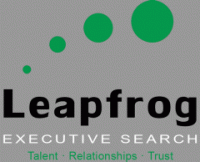Gone to Texas
Category : 2017
The Texas Talent Grab
As scores of people (including a few outlaws) pursued opportunity in Texas in the mid-1800’s, the phrase “Gone to Texas” or GTT would frequently appear nailed to the doors of abandoned houses or on fences beside vacated property. More recently, the Texas Governor’s Office of Economic Development gave GTT a second life by attracting new businesses to the Lone Star State with the promise of “Texas: Wide Open for Business.”
This 21st century GTT invitation is working! As home to 54 Fortune 500 companies, Texas ranks No. 2 in the U.S., ahead of California and Illinois. In the past six years, 75 major corporations have moved to Dallas/Fort Worth. Start-ups, company expansions, and corporate growth in DFW generated over 119,000 jobs between February 2016 and February 2017. An accelerating business environment creates an exponential competition for talent.
The Dallas Business Journal recently detailed the talent grab spreading across north Texas. None of the companies moving to Texas have announced an interest in candidates from the bottom half of the talent pool. The best companies are implementing ways to find and hire the top ten percent-and they are getting what they want.
Toyota announced their move from California and in a few months received 19,000 resumes aimed at the 1,000 openings the automaker is bringing to Plano. Tractor manufacturer Kubota’s move to Grapevine is driven by the need for innovation, efficiency, and talent. On a smaller scale, private equity firms are considering the talent in an acquisition as carefully as their quantification of a company’s financial results.
More than ever, human capital investments are being analyzed, quantified, and measured for impact to the business. In designing themselves for the future, companies must address the need for visionary leaders who can build a culture, anticipate the impact of workplace automation, and facilitate the on-going demand for employee engagement. These challenges become opportunities for differentiation when the leaders charged with resolving these realities are the most talented people the market offers.
How well is your executive leadership equipped to excel in a market where talent, technology, and transformation are driving forces in every organization? For over 16 years, Leapfrog Executive Search has leveraged our vast network of established relationships, our highly selective screening process, and our thorough knowledge of client needs to accelerate each client’s ability to select the executive talent required to lead their organization to new levels of success. Give us a call to discuss top 10% talent!
